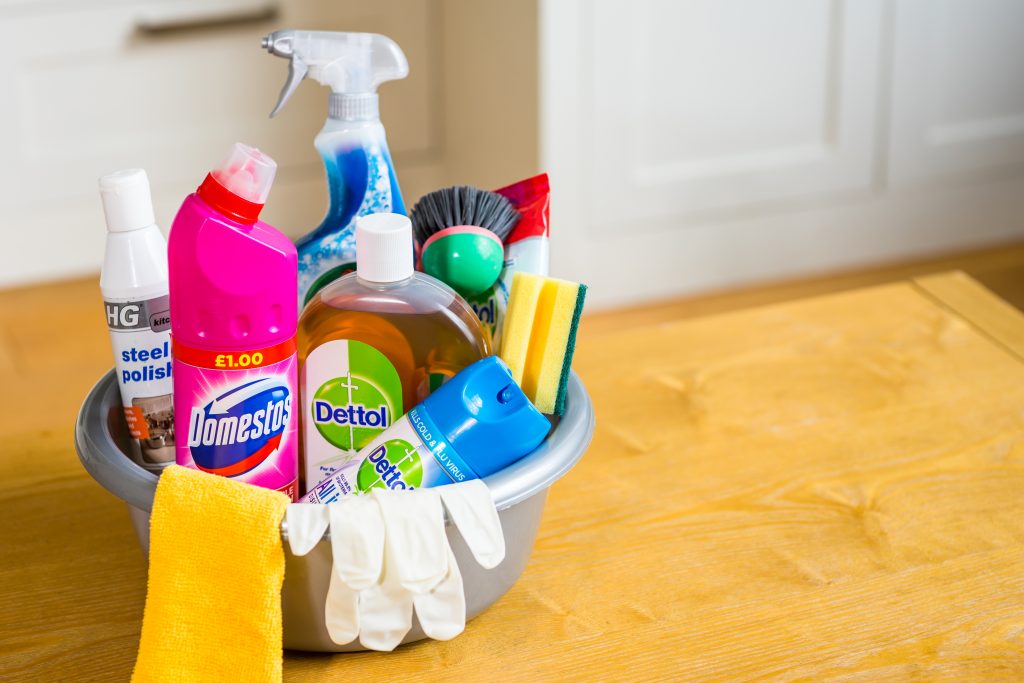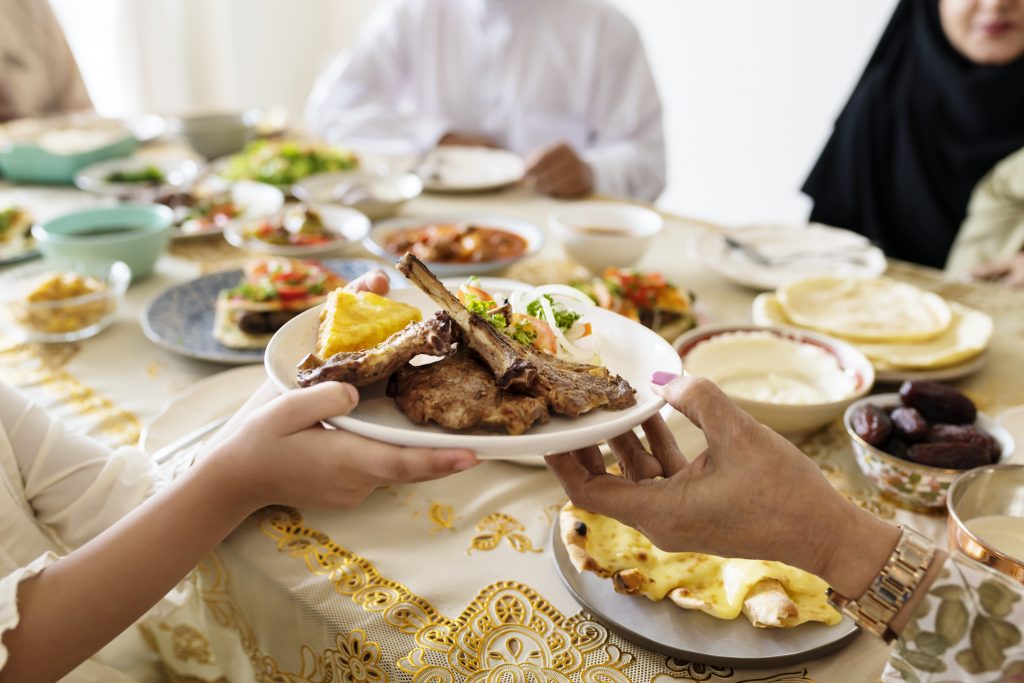#Life
Muslim Adulting 101: Tips And Tricks For Every Young (And Not So Young) Muslim Adult
Published

Social media is rife with complaints about how young Muslim men and women today aren’t ready for marriage, aren’t responsible enough for marriage, and are barely capable of keeping themselves alive without frantically calling their mothers or Googling how to make avocado toast. Having once been such a person (I got married at 18 and was incapable of making more than scrambled eggs), and having had around a decade’s worth of practise at adulting (I am now fully capable of making several egg dishes, though I have yet to achieve a round roti), it dawned upon me to help out the current generation of hapless almost-adults by providing a list of useful survival tips – not just for marriage preparation, but for life preparation.
I learned roughly half these things in the year before marriage, and the rest during first year of marriage. I do not claim to be an expert. I was married at 18, had a kid at 19, and was adulting at a semi proficient level by 20… although yes, I still frantically text my mother even now. I learned most of this while living in Egypt (with occasional stints in the village) and in Kuwait (as a broke non-Kuwaiti, not as a spoiled Khaleeji). You learn a lot of things the hard way, like how to toast bread on the stove when you can’t afford a toaster.)
Know How to Feed Yourself
Whether male or female, you should know how to make at least 3 breakfast items (toast and frozen items don’t count) – depending on your culture, there will be many different options to choose from, but they should be basic and easy, e.g. scrambled eggs, oatmeal, fool mudammas, za3tar and laban, etc.
Keep supporting MuslimMatters for the sake of Allah
Alhamdulillah, we're at over 850 supporters. Help us get to 900 supporters this month. All it takes is a small gift from a reader like you to keep us going, for just $2 / month.
The Prophet (SAW) has taught us the best of deeds are those that done consistently, even if they are small. Click here to support MuslimMatters with a monthly donation of $2 per month. Set it and collect blessings from Allah (swt) for the khayr you're supporting without thinking about it.
The same applies for lunch and dinner. It doesn’t have to be fancy, but you need to know the basics. Get up and go learn from your mom or dad or Pinterest or a YouTuber – as long as you just learn to do it instead of daydreaming about your spouse cooking for you. IT’S CALLED SURVIVAL SKILLS. (I learned from Canadian Living, before Pinterest was a thing. My mother still hasn’t forgiven me.)
Always, always, always remember: eat halal and tayyib food. I mean this completely seriously, and not just in a zabihah vs non-zabihah way (although, yes, zabihah is extra halal and you should definitely eat zabihah only). The simplest of foods, if you have the intention to eat that which is beneficial, will provide incredible satisfaction.

Cleanliness and Household Basics
Know how to clean your own bathroom. That means scrubbing the toilet at least once a week, the bathtub a few times a month, and generally sanitizing all surfaces. Flylady.com has some great tips
There is nothing nastier than leaving a mess in your bathroom and doing nothing to clean it. (And no, gender stereotypes about men leaving messes on toilet seats will not be tolerated. Fiqh of Taharah, people!)
Know how to clean your kitchen. When you do something in the kitchen, clean up after yourself as quickly as possible. Give your kitchen a deep-clean about twice a month. Clean your fridge, your microwave, under your toaster, and the top of your stove, which will accumulate a nasty layer of stickiness if you don’t wipe it down immediately after frying samosas.
Learn how to operate a vacuum, how to sweep effectively, and how to mop.
Never underestimate the importance of Tupperware. And by ‘Tupperware,’ I don’t mean the brand name – I mean washing out and using every yogurt tub, jam jar, and pasta bottle you use. You will indeed understand the wisdom of your foremothers. Make du’a for them when you reach this point of enlightenment.
Do your own laundry. Know the difference between hot water wash (and what items to use it for), and cold water/delicates. DON’T MIX A RED ITEM WITH WHITE. (Yes, I ruined my own delicates and my infant’s brand new onesies. Ugh.) When something says “dry clean only”… for the love of your wallet, dry clean only. (As a general rule, avoid buying dry clean only items.)
Learn how to iron. I hate ironing, I avoid doing it as much as possible, I still don’t always have the hang of ironing men’s shirts (although I can starch a ghutrah like no one’s business), but LEARN THE BASICS OF IRONING and how not to burn your brand-new abayah.
Men: this still applies to you. Learn to iron your own clothes. Also learn to iron women’s clothing. (Especially hijabs and abayas.) My grandfather ironed my grandmother’s clothes every day, and she always looked like she’d just stepped out of a Desi granny fashion mag.
Learn how to sew a basic stitch in case of emergencies. I’m not asking you to embroider a tapestry or tailor make a suit, but knowing how to thread a needle and mend a tear or rip is super duper handy. (I failed every sewing class my mother put me in, and my current pile of torn clothing is at her house, but yes, I can technically mend a tear.)
Most importantly, remember that as a member of a family unit – or any unit, including living with roommates – you must actively seek to be interdependent rather than selfishly and self-centeredly independent. Just as the Messenger of Allah 
If you are not doing these things in your/ your parents’ home, you do not deserve to have a marital home.
Hisham ibn ‘Urwa said that his father said,
“I asked ‘A’isha, may Allah be pleased with her, ‘What did the Prophet, may Allah bless him and grant him peace, do in his house?’ She replied, ‘He mended his sandals and worked as any man works in his house.'”
Hisham said,
“I asked ‘A’isha, ‘What did the Prophet, may Allah bless him and grant him peace, do in his house?’ She replied, ‘He did what one of you would do in his house. He mended sandals and patched garments and sewed.”
(Al Adab al Mufrad)

Manage Your Money
Know how to make a budget, and how to stick to it. Be aware of bills, how and when to pay them. Learn how to avoid debt under all circumstances.
Yes, this means being frugal.
Yes, this means couponing.
Yes, this means not spending $5 every day at Starbucks if you can’t afford it (and avoiding doing so every day even if you can afford it).
Yes, this means buying things on clearance.
Yes, this means putting aside money for sadaqah, and udhiyah and zakah if you required to distribute it according to your savings.
Most importantly, this means knowing how to organize and prioritize your expenses, how to cut down on the big bills and costs, and how to incorporate self-care without blowing out your wallet.
If you weren’t raised by frugal Desi parents who taught you every budgeting trick there is, then go read a book, listen to a podcast or look up online how best to budget. Don’t just budget for your immediate needs – anticipate future expenses, create a savings account (for school, Hajj, wedding), and always have something stashed away for emergencies. In this economy, you need to scrimp as much as possible.
Pro tip: Do not discount barakah as a major factor in your day to day living expenses. If you insist on only pursuing halaal rizq, if you make a point of avoiding interest-bearing student loans and mortgages, you will have barakah in your wealth. You will discover that a meager grocery shopping trip will leave you with food that lasts you for twice as long as you expected. You will learn that giving in sadaqah on a regular basis, no matter how minuscule the amount, will result in blessings in every aspect of your life. You will be happier, live better, and succeed in your daily living. In a culture where making money is considered the single most important aspect of one’s life, it is necessary to reorient ourselves as Muslims. Allah is ar-Razzaaq, and not a single penny will come our way unless He decrees; not an ounce of our wealth will benefit us unless we seek that rizq in a manner that is pleasing to Him.
Abu Huraira narrated that the Messenger of Allah ﷺ said:
“Verily Allah the Exalted is pure (tayyib). He does not accept but that which is pure. Allah commands the believers with what He commanded the Messengers. Allah the Almighty has said: “O you Messengers! Eat of the good things and act righteously”. And Allah the Almighty also said: “O you who believe! Eat of the good things that We have provided you with. Then he (the Prophet) mentioned (the case of) the man who, having journeyed far, is disheveled and dusty and who stretches out his hands to the sky (saying): “O Lord! O Lord!” (while) his food was unlawful, his drink was unlawful, his clothing was unlawful, and he is nourished with unlawful things, so how can he be answered?” [Muslim]

Hospitality
Learn how to be a good host/hostess. Almost every Muslim culture is known for its generosity towards guests, and for good reason: the Messenger of Allah 
Abu Shuraih reported: The Messenger of Allah, peace and blessings be upon him, said, “Whoever believes in Allah and the Last Day, let him honor his guest and recompense him.” They said, “O Messenger of Allah, what is his recompense?” The Prophet said, “It is for a day and a night, as good hospitality is for three days and after that it is charity.” (Bukhari and Muslim)
Being a good host and hostess means knowing the adab (etiquettes) of having guests over, no matter how unexpected or informal. Offer everyone from the delivery person to the snootiest masjid aunty water or other drinks when they come in, seat them in the best place in the house, know how to turn half a package of Oreos and cheese sticks into a presentable snack tray, and so on.
As well, if guests come to your home bringing a dish, make sure not to return that dish empty-handed! Always include something with it, whether homemade or even just a small package of treats.
Growing up, I always saw my parents being extremely generous hosts, even when completely unprepared, and they trained my brothers and I without even realizing it. Having frozen samosas or a stash of “guests only” treats in your pantry is incredibly useful when you find yourself with a crowd of unexpected visitors in your living room. It’s a shame that so many people today have neglected the art of hospitality, when it has always been a traditional hallmark of Muslims.

Beautiful Scents
Good scents are from the Sunnah, and it is a habit that one should make regular for the household. There’s nothing quite like walking in through the door and inhaling beautiful incense.
(Unless you or others in your home are allergic to perfumes and strong scents, in which case, never mind.)
Whether it’s bukhoor, agar bhatti, Yankee candles, or even scented diffuser oils, make it a habit to have your home (and yourself!) smelling beautiful. Your friends and family will always appreciate it!
The Messenger of Allah 
Jabir ibn Abdullah reported:
The Prophet, peace and blessings be upon him, said, “Whoever eats onions, garlic, or leeks should not approach our mosque, for the angels are offended by whatever offends the children of Adam.” (Muslim)
Muslim-Specific Adulting Pro Tips
Be the person who wakes everyone up for Fajr (or sets enough alarms that eventually, *someone* will wake up). In Ramadan, be the person who helps with suhoor and iftaar, instead of being a lazy bum who drags their butt out of bed to stuff their faces and then crawls back into bed until Fajr.
Be the person who reminds the rest of the household to fulfill the sunan of Jumu’ah – doing ghusl, wearing the best clothes, reading Surah al-Kahf etc.
Call the adhaan for every salah and encourage everyone at home to pray together; do dhikr often, especially the daily adhkaar; remind yourself and your loved ones to recite Qur’an often in the home, and have it playing regularly on audio instead of playing background music.
Abu Huraira reported:
The Messenger of Allah, peace and blessings be upon him, said, “Do not turn your houses into graveyards. Verily, Satan flees from the house in which Surat al-Baqarah is recited.” (Muslim)
Keep standard Sunnah foods in hand and well in stock: honey, dates, black seed and black seed oil, olive oil. Make it a habit to ruqya-fy honey & oils (i.e. recite ayaat used for ruqya over your water, honey, olive and black seed oils. It is a means of protection and benefit, regardless of whether you have ayn or sihr issues; it is beneficial even for physical ailments. Pro tip: buy big jars/bottles and recite over them.)
And that, folks, is a 101 to Basic Muslim-y Adulting. If you aren’t married yet, this will at least prepare you for some basic survival as you establish your own home; if you are married but don’t know or do these things… well… hopefully it’s not too late for you yet. I cannot emphasize enough that this entire checklist applies equally to men and women; the vast majority of these points can be found as sunan from the life of the Messenger of Allah 
May Allah make us all of those who uphold their responsibilities with Ihsaan, and establish households based on the best of Islamic values and ethics, ameen.
Keep supporting MuslimMatters for the sake of Allah
Alhamdulillah, we're at over 850 supporters. Help us get to 900 supporters this month. All it takes is a small gift from a reader like you to keep us going, for just $2 / month.
The Prophet (SAW) has taught us the best of deeds are those that done consistently, even if they are small. Click here to support MuslimMatters with a monthly donation of $2 per month. Set it and collect blessings from Allah (swt) for the khayr you're supporting without thinking about it.
Zainab bint Younus (AnonyMouse) is a Canadian Muslim woman who writes on Muslim women's issues, gender related injustice in the Muslim community, and Muslim women in Islamic history. She holds a diploma in Islamic Studies from Arees University, a diploma in History of Female Scholarship from Cambridge Islamic College, and has spent the last fifteen years involved in grassroots da'wah. She was also an original founder of MuslimMatters.org.


Faith, Identity, And Resistance Among Black Muslim Students

Moonshot [Part 12] – November Evans

From The Prophets To Karbala: The Timeless Lessons Of Ashura For Muslims Today

Moonshot [Part 11] – The Fig Factory

Nationalism And Its Kurdish Discontents [Part II of II]: Kurds And Turkiye After Ottoman Rule

Moonshot [Part 11] – The Fig Factory

Moonshot [Part 12] – November Evans

Moonshot [Part 10] – The Marco Polo

Moonshot [Part 9] – A Religion For Real Life

Nationalism And Its Kurdish Discontents [Part II of II]: Kurds And Turkiye After Ottoman Rule

[Dhul Hijjah Series] Calling Upon the Divine: The Art of Du’a (Part 1)

IOK Ramadan 2025: Four Steps | Sh Zaid Khan

IOK Ramadan 2025: Do Your Best | Sh Zaid Khan

IOK Ramadan 2025: Giving Preference to Others | Sh Zaid Khan





Fatima Moinuddin
August 13, 2020 at 6:44 PM
mashAllah tabarakAllah beautiful article.
Zainab bint Younus
August 14, 2020 at 10:28 PM
Jazaakillaahi khayran :)
Spirituality
August 14, 2020 at 7:30 AM
Jazaki Allahu Khayran for these tips!
Very useful. Still have to work on the hospitality part a bit!
I do disagree with the saving and reusing plastic containers. Please don’t. These are a major health hazard. Certainly not tayyib. Our forefathers (and mothers) reused and recycled – but they reused containers made of glass, clay, etc. If you can, spend the extra money and buy glass/clay containers up front. As long as you are careful, you can use them for years and years afterwards without worrying about increased cancer risk, estrogenic effects, impaired immunity, etc.
If you must use plastic, make sure its food grade, BPA free. And never put plastic in the microwave and never put hot food/liquids in plastic.
Another point, instead of perfumes, please consider using essential oils or other natural fragrances. Most perfumes today are not the same as perfumes used by the Prophet (s). Not even close – they are made of petrochemicals and can cause hormone imbalances, immune system dysfunction, etc. As sister Zainab mentioned, plenty of us are very sensitive. (Indeed by using perfumes in your house, you may unwittingly not be the best host to your guests). The smell of essentials oils wafting from diffuser can do wonders in freshening up a room and brightening up ones mood.
Thanks again for your great tips! Hope these additions help!
Fritz
August 15, 2020 at 3:09 PM
“(i.e. recite ayaat used for ruqya over your water, honey, olive and black seed oils.”
Not sure what this means. Random ayat? Anything specific?
Help Needed
August 16, 2020 at 11:56 PM
can someone summarize please?
There you go
August 17, 2020 at 12:42 AM
1. Learn how to feed yourself (in a halal and healthy way)
2. Know basic cleanliness and household basics
3. Learning how to manage your money a.k.a. Budgeting, charity etc.
4. Learn how to be hospitable (it’s sunnah!)
5. Keep yourself and your dwelling nicely scented (or odor-free in case of allergies)
6. Muslim-specific stuff like waking up for fajir, daily adhkar etc.
*learn how to read the article
** these are for BOTH, men AND women
Ahmed Abdulla
August 18, 2020 at 8:22 PM
In Surah Tin, verse 6:
6. “Except for those who believe and do righteous deeds, for they will have a reward uninterrupted”
Just doing the right thing when no one is watching is a great lesson for Muslims to follow. Is the reward for good anything but good?